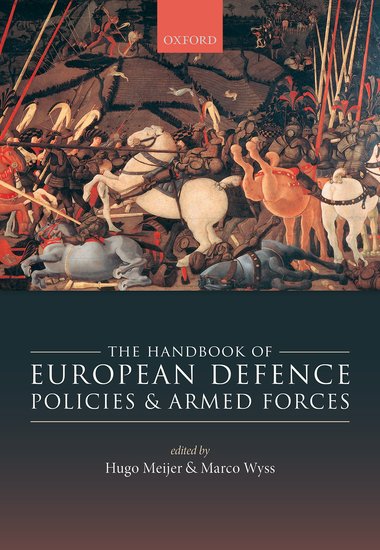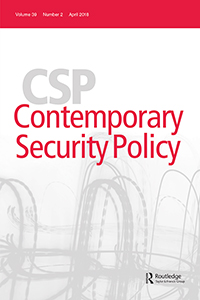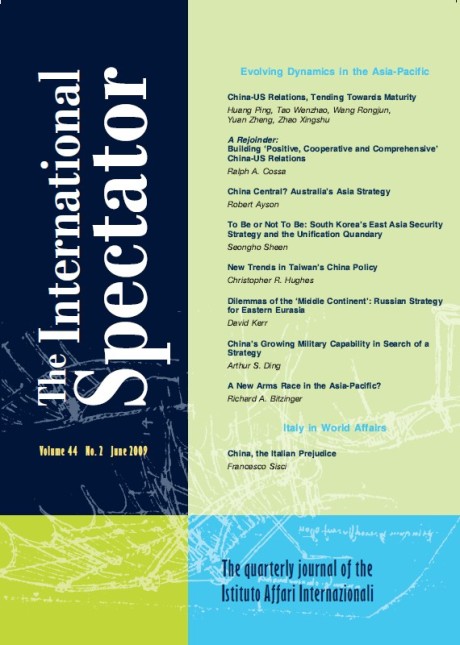I authored a chapter in a collective volume on geopolitical decline edited by Frédéric Mérand. The book is available online.

I authored a chapter in a collective volume on geopolitical decline edited by Frédéric Mérand. The book is available online.

I co-authored with my colleague Alice Pannier (Johns Hopkins) an article on French defence policy, which was published in the latest issue of International Affairs.
It is available online here, or in PDF.

I just published a chapter on French defense policy since 1962 in the second volume of the new Histoire Militaire de la France (French Military History) edited by Hervé Drévillon and Olivier Wieviorka. You can access the book here.

Sten Rynning and I co-authored the chapter on France in the Oxford Handbook of European Defence Policies and Armed Forces edited by Hugo Meijer and Marco Wyss.

My latest paper has been published by Contemporary Security Policy. You can access it online here and in pdf. I reproduce the abstract below.
Most research on strategic narratives has explored their creation, and their interaction with other elements of national power in the conduct of foreign policy. Yet, the issue of how the targeted political communities receive those strategic narratives, and thus how those narratives are likely to have a political impact, is understudied. This article argues that in order to understand the ways strategic narrative are received within a political community, political myths must be taken into account. It introduces a typology of political myths based on their degree of universality and their degree of coherence with other myths, and shows how those factors influence the reception of strategic narratives. These mechanisms are illustrated through a study of the reception of the Russian strategic narrative in France. This approach offers opportunities to assess the differentiated impact strategic narratives have on political communities.

I published two chapters (in French) in a collective volume edited by Sonia le Gouriellec. My chapters are entitled “Are International Sanctions Useless?” and “Is the French Foreign Policy Aligned on the United States?”.
You can access the book here.

I published an article on French foreign policy under François Hollande and the prospects for Macron in the journal Welt Trends (in German). You can access the issue here.

I published with my colleague Jon Rahbek-Clemmensen a piece in The International Spectator comparing the French and Danish think-tanks. The article is available here and can be downloaded here. I reproduce the abstract below.
Even though France is an active player on the world stage, its foreign and security think tank milieu is smaller than that of similar powers, most notably the United Kingdom. Comparing French think tanks with those in Denmark illustrates how French institutional structures constrain think tank activities. France’s political tradition of centralisation, its non-academic civil service education, and separation of academia and administration create an environment in which think tanks are underfunded and walk a fine line between an over-controlling administration and a suspicious academia. Some French think tanks perform well in spite of these structures, which indicates that they could flourish and compete at the highest international level if given better structural conditions.

I published two articles in the Journal of Strategic Studies on France’s defence policy. They are part of a special issue on France in the transatlantic security order I guest-edited, and which includes articles from Alice Pannier (US-UK-France relations), Stephanie Hofmann (French party politics and policies towards NATO), Olivier Chopin (intelligence reform), and Élie Tenenbaum (irregular warfare).
Below are the abstracts and the links to the two articles, available in open access thanks to the SDU library.
“The Reluctant Atlanticist: France’s Security and Defence Policy in a Transatlantic Context” (link) (pdf)
This article introduces the key tenets of French foreign and security policy during the Cold War, and illustrates the deep challenges to the French consensus raised by the emergence of a unipolar system. There is a growing gap between the rhetoric of French security policy, emphasizing ‘autonomy’ and ‘sovereignty’ out of habit from the Cold War, and the actual security practices showing a gradual embedding within the transatlantic security structures. In the absence of a new transpartisan grand narrative relevant for the contemporary international system, such embedding is easily portrayed in France as a ‘treason’ from a romanticized Gaullist foreign policy.
“French Military Adaptation in the Afghan War: Looking Inward or Outward?” (link) (pdf)
For some, a specific feature of the French armed forces’ adaptation process would be the capacity to look inward instead of outward in order to identify relevant solutions to tactical/doctrinal problems. This article questions such a narrative, and argues that the French armed forces are as quick as any to borrow from other countries’ experiences. In order to do so, this article introduces the concept of ‘selective emulation’, and compares the French and German military adaptation processes in Afghanistan. The article argues that there is indeed something distinctive about French military adaptation, but it is not what the fiercest defenders of the French ‘exceptionalism’ usually account for.

I just published with my friend and colleague Jean-Baptiste Jeangène Vilmer an article on War on the Rocks on French military interventions abroad.
You can read the article online.